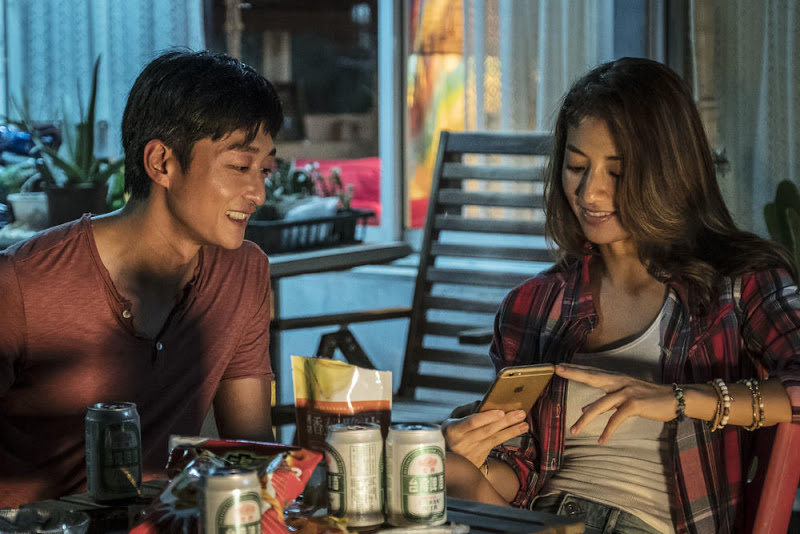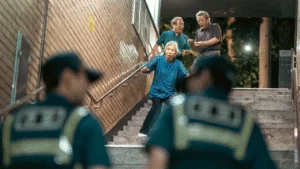
Set in modern-day Taipei, debutant filmmaker Xi Huang’s Missing Johnny comes with a fascinating plot device – the title character, Johnny. He who never appears in the film is omnipresent in the film’s plot-line thanks to his friends, family and relatives relentlessly dialling a certain wrong number. The number belongs to a newbie in the city, Hsu (Rima Zeida), a hostel worker and also an enthusiastic pet-mother of a number of ornate parrots. She is aware of this strange intrusion but is polite in demeanour while cutting off every phone call. Besides her enthusiasm for birds, Hsu is also seen to share a loveless relationship with her rich boyfriend, which eventually leads to something of meaning with Feng (Ko Yu-luen) – someone who enters her life via his broken-down car.
Besides Hsu and Feng, the film is also about the former’s neighbour Lee – an autistic kid whose curiosity for things as well as the struggle to fit into this big, bad world is a matter that elicits immense amounts of empathy. Missing Johnny occasionally connects these characters on a single palette, making us heed to each of their agonies with rapt attention.
One that runs perennially in a languid pace, Missing Johnny seldom soars to attain notable amounts of commotion on screen. Even as we stride a family conflict or an aching mother’s guilt, the film refuses to take melodramatic tenors. Huang balances the emotional contours of the narrative with a known sense of realism. There are metaphors galore and the frames are as spontaneous as it gets – making us revel at some of their sheer thoughtfulness. Case in point is a slightly long-drawn yet equally rewarding altercation between two domesticated parrots.
ALSO READ: ‘After the Storm’ – a truthful picture of life and its unsaid miseries
Dialogues are minimal and are interspersed seamlessly in a plot that is filled with finite layers – exposing various vagaries of human life – be it insecurities, regrets, inadequacies, longings and so on. There are several bits that reminded me of a style characteristic to Japanese auteur Hirokazu Koreeda. The young Lee, forever perplexed with his mother leaving sticky notes for him, gets a tiny moment of vindication when the film throws in his Alzheimer-struck grandmother at a masterful instance. Similarly, Missing Johnny also gets its man-woman equations right by not overtly focusing on physical intimacy. I was particularly thrilled by the unexpected run that Feng and Hsu take atop a highway, only to crash in a corner panting and later breaking into peals of laughter. The DOP’s decision to let the camera make love to his characters and locales is a major plus. This way, Missing Johnny explores Taipei with great beauty, almost to the extent of letting its idiosyncrasies be a key mood decider.
On the flip side, Missing Johnny’s lethargic pace is one that will test your patience. Long stretches of inactivity, particularly in the first two acts, is a massive limitation in letting the audience invested in the characters’ respective psyches. It takes a reasonable while to get used to the film’s myriad characters and their disparate moods. The intertwining of subplots, even though seamlessly designed, tends to reduce the story into a semi-bore in various stages of the film. That said, the film’s decision to focus on its atmosphere (staged around the larger temperament of Taipei) is a unique route, which is exactly what salvages it towards the finale.
The actors put in a unanimously neat show in holding on to some of the film’s long yet richly emotional frames. The minimal original score adds a great deal of mystique to the semi-dull atmospherics that the film sets in. Huang refuses to unravel the mystery around Johnny and decides to close the film on an utterly enthralling note, set atop a flyover bridge. A filmmaker to watch out for, indeed.
The film was screened at the 2019 edition of Jagran Film Festival held in Mumbai from 26-29 September.

